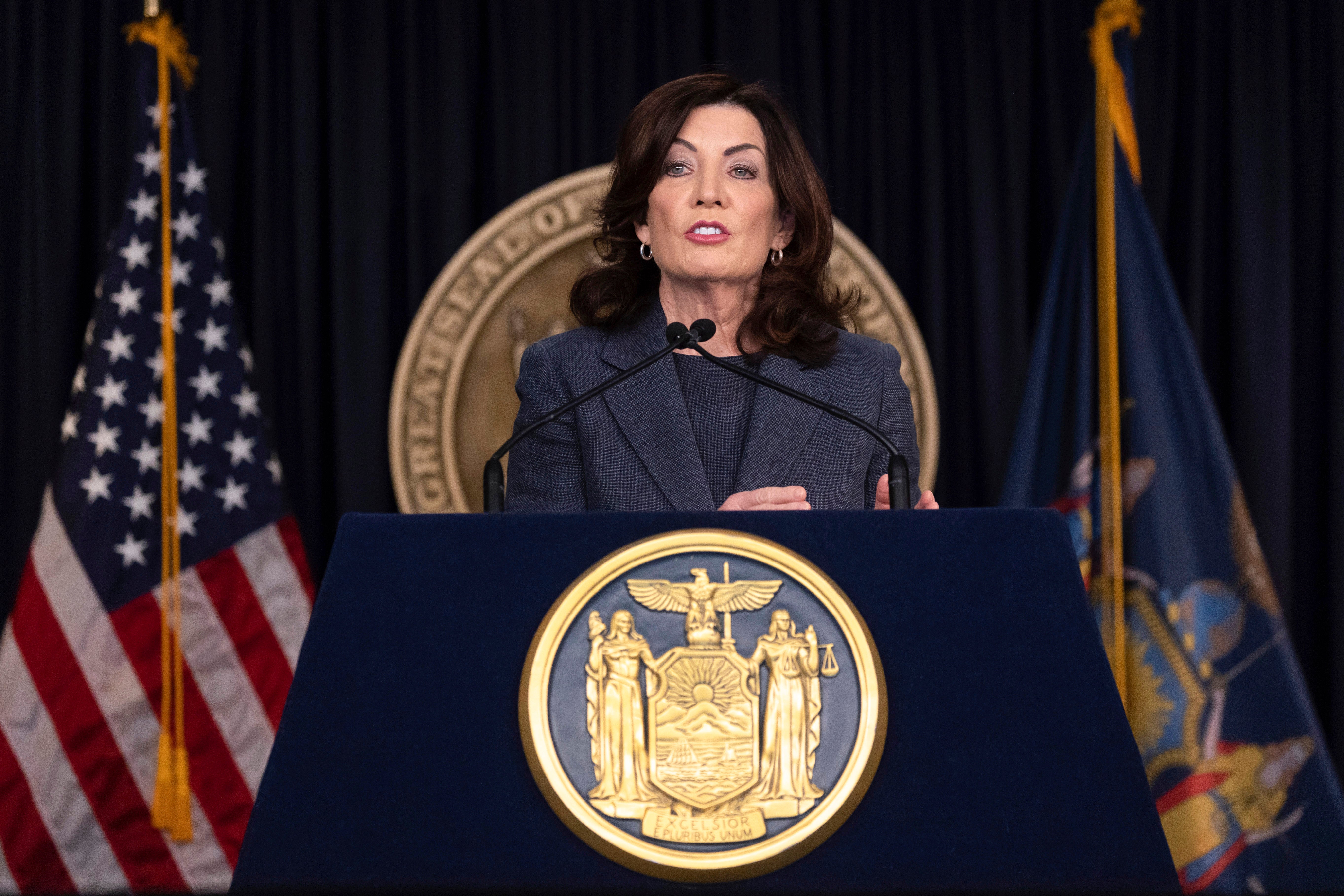New York governor vetoes change to wrongful death statute, nixing damages for emotional suffering
New York Gov. Kathy Hochul has again vetoed legislation that would have changed the state’s wrongful death statute by letting families recover damages for emotional suffering from the death of a loved one

Your support helps us to tell the story
From reproductive rights to climate change to Big Tech, The Independent is on the ground when the story is developing. Whether it's investigating the financials of Elon Musk's pro-Trump PAC or producing our latest documentary, 'The A Word', which shines a light on the American women fighting for reproductive rights, we know how important it is to parse out the facts from the messaging.
At such a critical moment in US history, we need reporters on the ground. Your donation allows us to keep sending journalists to speak to both sides of the story.
The Independent is trusted by Americans across the entire political spectrum. And unlike many other quality news outlets, we choose not to lock Americans out of our reporting and analysis with paywalls. We believe quality journalism should be available to everyone, paid for by those who can afford it.
Your support makes all the difference.New York Gov. Kathy Hochul has again vetoed legislation that would have changed the state’s wrongful death statute by letting families recover damages for emotional suffering from the death of a loved one.
Hochul declined Friday to sign the Grieving Families Act for the second time this year. In a veto memo, the Democrat said she favors changing the statute but the bill lawmakers sent her had the “potential for significant unintended consequences.”
Among Hochul's concerns, she said, were the possibility of increased insurance premiums for consumers and a risk to the financial well-being of public hospitals and other health care facilities.
New York is one of just a few states that account only for economic loss in wrongful death lawsuits. Almost all states allow family members to be compensated for emotional loss.
The head of the New York State Trial Lawyers Association, David Scher, called Hochul’s veto “a grave miscarriage of justice."
The governor's decision "puts the safety of New Yorkers in jeopardy and upholds a perverse standard of morality in current New York law,” Scher said in a statement.
The state’s existing wrongful death statute calculates how much families are compensated based on pecuniary loss, or the potential earning power of the deceased person. That means the family of a top-earning lawyer, for example, can recover more damages than the family of a minimum-wage worker.
Hochul wrote that valuing life based on potential earnings “is unfair and often reinforces historic inequities and discriminatory practices,” but said she chose to veto the bill because lawmakers failed to adequately address concerns she raised when she nixed a previous version last January.
“Every human life is valuable and should be recognized as such in our laws and in our judicial system,” Hochul wrote. “I proposed compromises that would have supported grieving families and allowed them to recover additional meaningful compensation, while at the same time providing certainty for consumers and businesses.”
The long-sought bill stalled for about two decades before reaching Hochul’s desk for the first time after passing last year. She vetoed that version on the grounds that it would drive up already-high insurance premiums and harm hospitals recovering from the pandemic.
“We tried to address her concerns squarely,” said Sen. Brad Hoylman-Sigal, who sponsored both vetoed bills. “It’s absolutely outrageous that lives in New York are valued differently under our wrongful death statute.”
The latest version was passed by lawmakers in June with strong bipartisan support. Hochul said she went through “much deliberation” before deciding to veto it. In her memo, she said she remains open to updating the wrongful death statute.
The legislation would have enabled families who file lawsuits over a loved one’s wrongful death to be compensated for funeral expenses, for some medical expenses related to the death and for grief or anguish incurred as a result, in addition to pecuniary losses.
___
Maysoon Khan is a corps member for the Associated Press/Report for America Statehouse News Initiative. Report for America is a nonprofit national service program that places journalists in local newsrooms to report on undercovered issues. Follow Maysoon Khan on X, formerly known as Twitter.